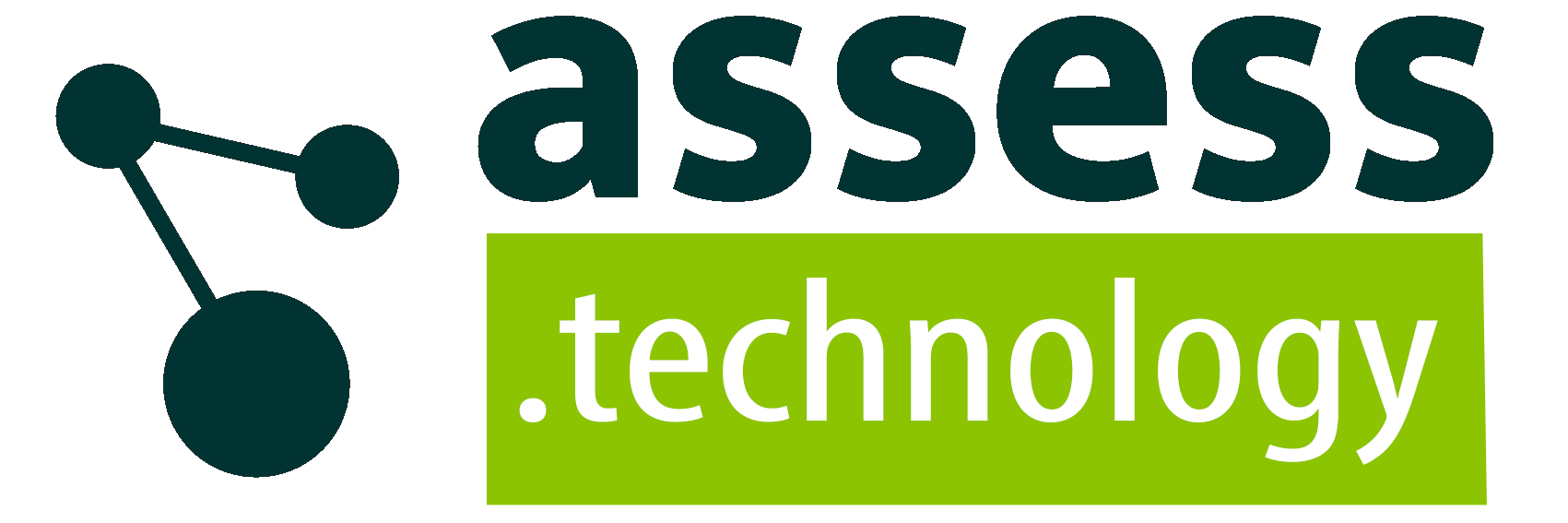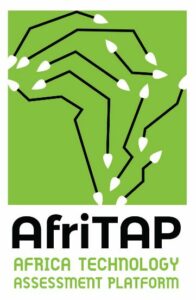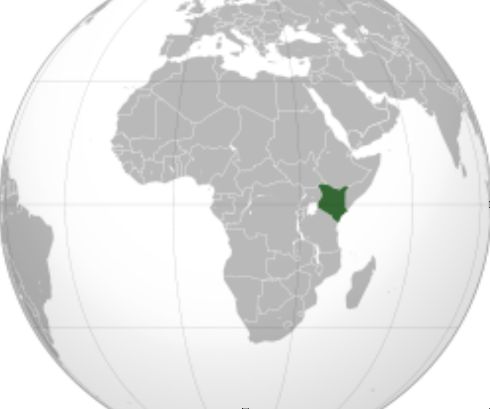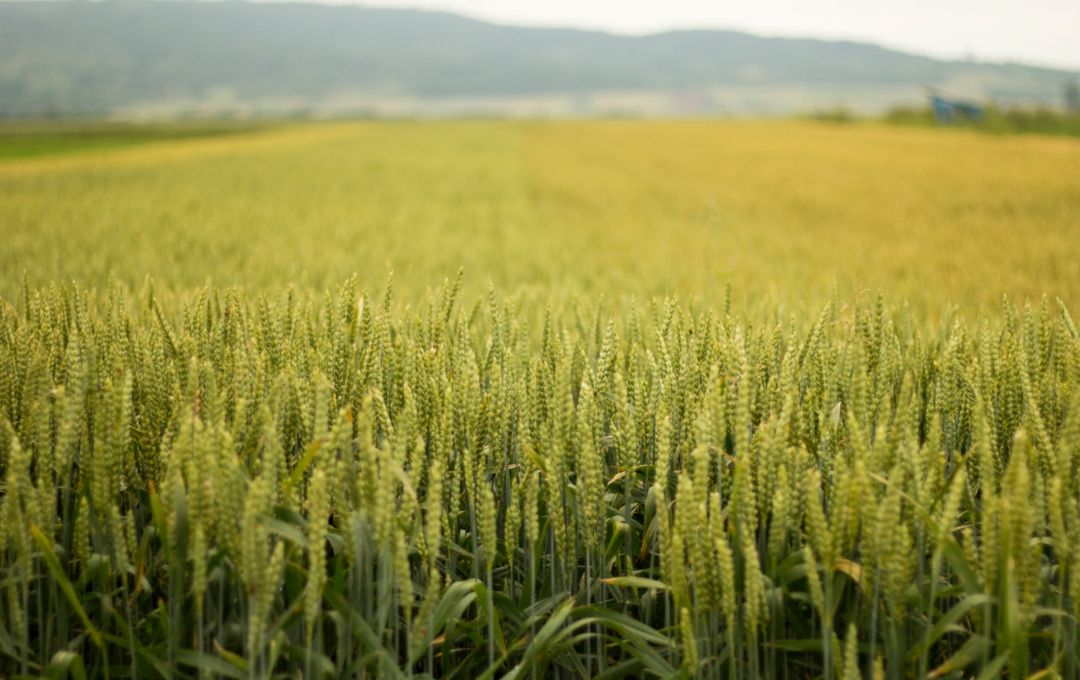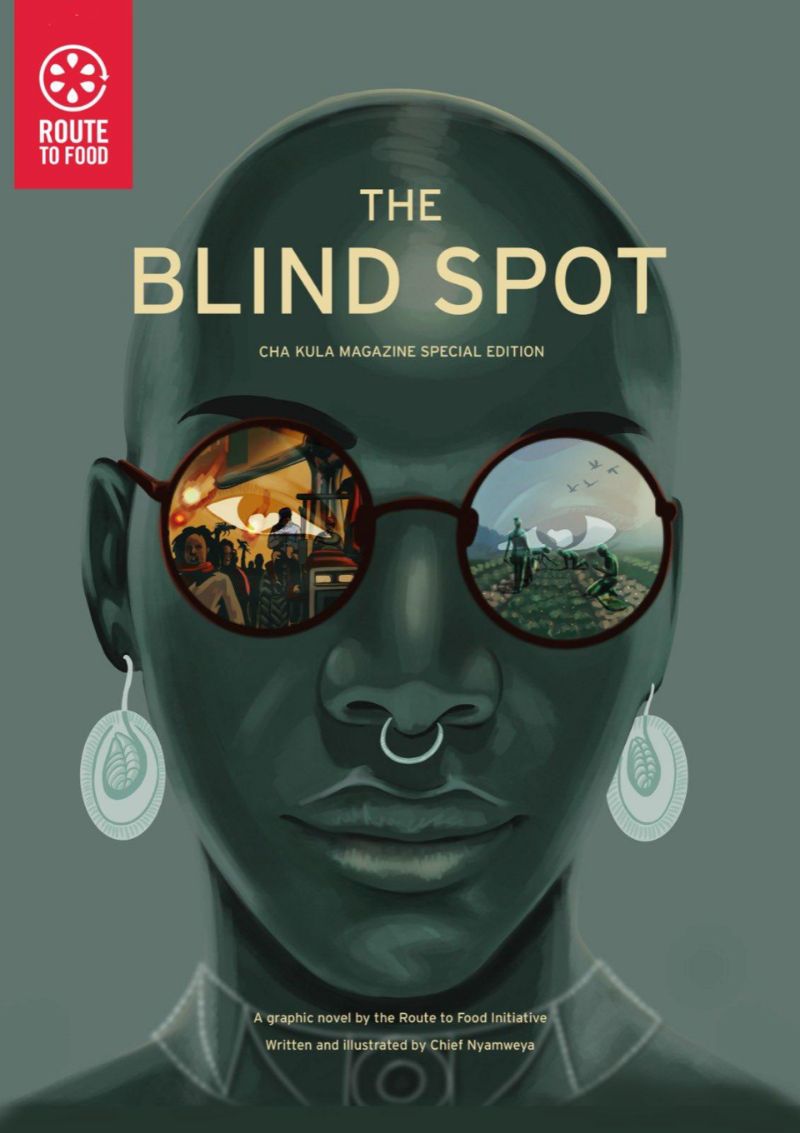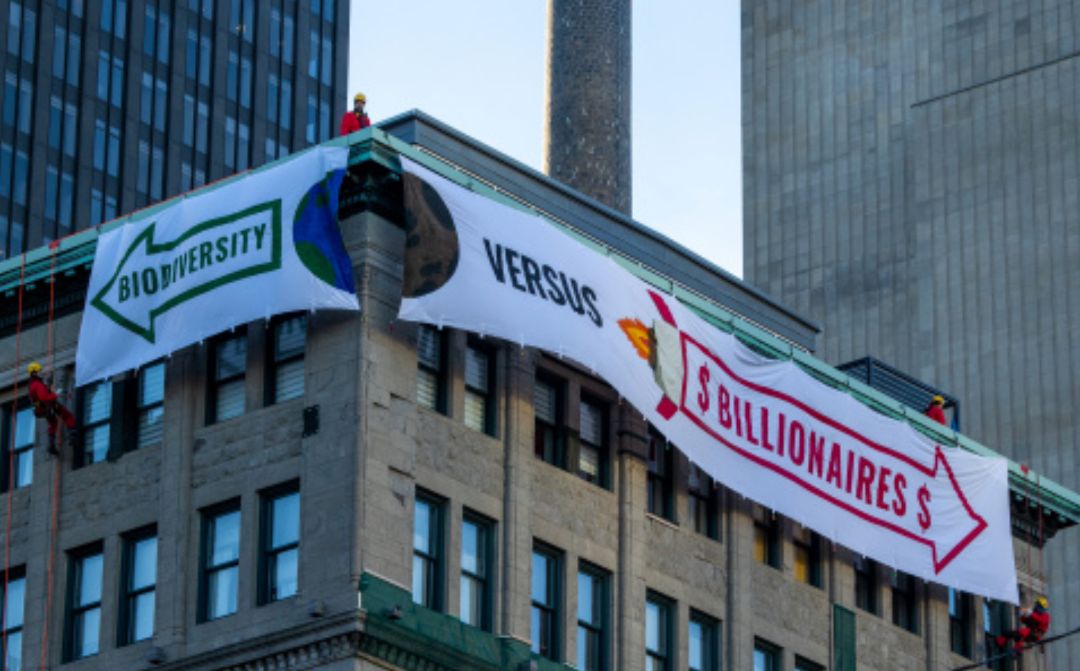An AfriTAP newsletter, February 2023
AfriTAP presents our third newsletter! This newsletter highlights developments in new technologies in Africa, in the areas of geoengineering, agriculture, genetic technologies and digital technologies. We hope you find this useful. Do share this newsletter and encourage others to sign up!
What is AfriTAP? AfriTAP is the short name for the African Technology Assessment Platform. (in French, PEMTAfrique, Platforme d’Evaluation Multidimensionelle des Technogies en Afrique). This is an initiative of African and International civil society groups working together to track, understand and respond to new technologies that are reshaping our lives and environment.
AfriTAP is led by HOMEF (Nigeria), CESAO (West Africa), Terre a Vie (Burkina Faso), IRPAD (Mali) and ETC Group (international) and hopes to grow into a continent-wide network. Our aim is to remain vigilant with respect to which new technologies are being introduced to the continent and to ensure that civil society organizations have relevant information to be able to evaluate, strategize and organize. For more information see: https://assess.technology/regional-technology-assessment-platforms/africa
This edition’s contents:
Geoengineering Technologies
- Degrees Initiative gives $900 000 to scientists from Africa, Asia and South America
- Kenya set to be a key target in carbon removal industry
Agricultural Technologies
- Kenya tries to lift ban on GMOs: Kenya Peasants League files a lawsuit
- Senegal authorizes the import and marketing of GMOs: civil society denounces the process
- Landmark challenge against Monsanto/ Bayer’s drought tolerant GM maize to be heard in South African High Court
- Dakar II Summit on Agriculture: 83 organizations sign a letter in opposition to climate smart agriculture
- Three African agritech businesses receive $1.5 million from Heifer International
- Launch of the Blind Spot, a graphic novel about power and politics in Kenya’s food systems
Genetic Technologies
- Target Malaria aims to open an African Centre for Excellence in Molecular Engineering
Digital Technologies
- ChatGPT’s creator, OpenAI, paid Kenyan workers less than $2 a day to remove content with violence, hate speech, and sexual abuse from the chatbot
International Negotiations
- Convention on Biological Diversity (CBD) December 2022: Technology Assessment only just makes it into the text
Geoengineering Technologies
Degrees Initiative gives $900 000 to scientists from Africa, Asia and South America
The Degrees Initiative, a UK-based organization promoting the geoengineering technique of Solar Radiation Modification (SRM) and specifically Stratospheric Aerosol Injections (SAIs), announced that it would provide $900,000 to scientists in 15 countries including Benin, Cameroon, Ghana, Mali, Nigeria, South Africa and Uganda to study the effect of solar geoengineering. The funding is a joint project between Open Philanthropy – a venture funded by Facebook co-founder Dustin Moskovitz – and the World Academy of Sciences. SAI is a technology which proposes to spray large quantities of sulphur particles (e.g. sulphur dioxide) into the stratosphere (the upper layer of the atmosphere) to act as a reflective barrier against the sun’s rays. sunlight. Proposals can include shooting particles from artillery guns, using large hoses to the sky or emptying particles from the back of aircraft. Although proponents of research into geoengineering, argue in response to criticism that research is not the same as deployment, these experiments are extremely risky, and often take place on Indigenous peoples’ lands without their consent. Research is not neutral and even small experiments could have huge long-term consequences if a billionaire, or another powerful actor, decided to implement the technology on a large scale. In January, the Mexican government announced that it would not allow solar geoengineering experiments in Mexico, a move welcomed by civil society groups.
Kenya set to be a key target in carbon removal industry
On February 21 2023, the US-based Institute for Carbon Removal Law and Policy, an institute dedicated to promoting carbon dioxide removal (CDR), will host a webinar on how Kenya could become a key player in the carbon removal industry due to its “booming renewable energy industry” and its “basaltic geology that is favorable for carbon storage.” CDR refers to projects that suck carbon out of the atmosphere on a massive scale. Ironically, it is Kenya’s renewable energy sector, with over 92% of the country’s energy being from renewable sources, and its large geothermal industry, that has made it a target for those interested in promoting carbon removal technologies. The United Nations Economic Commission Africa (UNECA), is also proposing negative emissions technologies (NETs) – also known as carbon dioxide removals – as a means to achieve the Sustainable Development Goals. UNECA claims that making Africa a large ‘sink’ for carbon emissions will mitigate against climate change impacts.
The AfriTAP network is not against removing carbon from the atmosphere through natural means such as planting trees (not plantations) and restoring mangroves provided these initiatives are managed by the communities in which they take place. AfriTAP also supports agroecology as a sustainable technology, but we are against CDR and other geoengineering technologies.
Agricultural Technologies
Kenya tries to lift ban on GMOs: Kenya Peasants League files a lawsuit
In October 2022, the Kenyan government announced that it would allow genetically modified organisms (GMOs) into the country, lifting a ban that has been in place for ten years. The announcement came after a visit to Kenya by Bill Gates. Gates pledged an additional $7bn to African countries to help deal with food insecurity, which included supporting the growing of GMOs. In Kenya, the plan was for 10 million bags of GMO maize mainly grown in the US to be dumped in the country. Instead of questioning the dangers of GMOs, some politicians openly joked about GMOs killing people. In the following weeks, the High Court in Kenya temporarily stopped the import and distribution of GMOs after a case was filed by the Kenyan Peasants League. KPL argued that the government did not carry out widespread consultation with peasants as the constitution requires. Another lawsuit was filed, accusing the government of rushing through the decision in violation of the rights of smallholder farmers and consumers. On February 10 2023, a group of students, supported by a group called RePlanet Africa, marched in favour of GMOs in Nairobi city centre and in Kampala. RePlanet Africa is a European organization which claims to be “pro-science” and promotes biotechnology and nuclear energy in Africa.
Senegal authorizes the import and marketing of GMOs: civil society denounces the process
In June 2022, the Senegalese National Assembly adopted a bill on biosafety which repeals an earlier 2009 law on biodiversity. The new bill removes text which bans the import of GMOs. It allows for the import and marketing of GMOs and their derived products. Civil society actors, including the West African Peasant Seeds Committee (COASP) denounced the process of introducing the new bill which they say lacked inclusiveness, transparency and participation. They called on the government to postpone the promulgation of the law and open a popular debate around the text as advocated by Article 13 of the Convention on Biological Diversity and Article 23 of the Cartagena Protocol on Biosafety.
Landmark challenge against Monsanto/ Bayer’s drought tolerant GM maize to be heard in South African High Court
After five years of protracted legal proceedings, the South African High Court will hear a court case challenging Monsanto’s claims that its GM maize is drought tolerant. The court case follows many years of campaigning and advocacy work by the African Centre for Biodiversity (ACB). The drought tolerant traits were to be offered to small-scale farmers via the Gates-funded Water Efficient Maize for Africa (WEMA) project, targeting several African countries. In 2017, commercial approval for the drought tolerant maize was granted but it was subsequently put on hold when ACB approached the High Court for a review. According to ACB, the best outcome to the case would be for the judgment to lead to a reversal of the decision to approve commercial cultivation of the drought tolerant trait, which would “likely significantly hamper the continued push of these failed GM varieties on other countries in Africa too.”
Dakar II Summit on Agriculture: 83 organizations sign a letter in opposition to climate smart agriculture
In January, the Senegalese government and the African Development Bank hosted the Dakar II Summit “Feed Africa” whose stated aim was to raise agricultural productivity and support infrastructure and “climate-smart” agricultural systems using private sector investments in order to “help turn Africa into a breadbasket for the world.” In response, 83 African and international civil society organizations signed a collective statement in opposition to the summit’s “climate smart agriculture” approach. They noted that although Climate Smart Agriculture sounds like a solution to the climate crisis, it can include a range of destructive practices such as large-scale monoculture, factory farming, and GMOs, as revealed by GRAIN. The statement also denounced the summit’s support for the Water Efficient Maize for Africa (WEMA), emphasizing research by the African Centre for Biodiversity which revealed how WEMA aims to build a private-sector seed industry in Africa and spread hybrid maize varieties, with both Monsanto and BASF donating to the WEMA project. Signatories urged participants to support the organizing initiatives of African farmers and organizations fighting for food sovereignty and agroecology, and those who are fighting back against land grabbing by agribusiness and private investors.
Three African agritech businesses receive $1.5 million from Heifer International
Three African Agritech businesses – Kenya’s DigiCow, Botswana’s Brastorne Enterprises and Nigeria’s ThriveAgric – are set to receive $1.5 million from the Heifer Foundation in order to expand solutions for small scale farmers. The Kenyan DigiCow platform provides free access to livestock management experts, veterinarians, artificial insemination providers and feed supply services and features a digital training room. Nigeria’s ThriveAgric is a tech driven ag company which also developed the proprietary Agricultural Operating System (AOS) that links farmers to capital, agricultural advice, business support, and access to markets. It also provides farmers with access to inputs. Botswana’s Brastorne claims to give farmers access to localized information, markets and finance. But digital farming apps and technologies are also reinforcing corporate concentration in the agricultural system, and using farmers’ data to further entrench corporate power, as well as promoting an industrial model of agriculture that locks farmers into using private seeds, toxic pesticides and fertilizers. Indeed, Heifer International, which provided support for these startups, has a partnership with the agribusiness giant Cargill for poultry projects and with Barry Callebaut, one of the world’s largest cocoa companies. It also partners with the Bill and Melinda Gates Foundation (BMGF) which has been criticized by many groups for promoting a high-tech, market-based, industrial agriculture model closely aligned with transnational corporations, such as Monsanto, and foreign policy actors like USAID.
Launch of the Blind Spot, a graphic novel about power and politics in Kenya’s food systems
In more positive news, the Kenyan organization Route to Food, in collaboration with the Nairobi-based animation company Freehand Studios, launched The Blind Spot, a graphic novel about power and politics in Kenya’s food systems. The novel explores what happens when a Kenyan region called Kajibora County has to contend with the arrival of a multinational digital agribusiness company called Greenshoots. The launch featured an in-depth discussion with ETC Group, Kenyan Peasants League and the Töpfer Müller Gaßner Think Tank for Sustainability on the dangers of corporate concentration in the food system, land tenure issues and the recent lawsuit against Kenya’s lifting of the GMO ban. The book is now available online.
Genetic Technologies
Target Malaria aims to open an African Centre for Excellence in Molecular Engineering
At the beginning of 2023, Target Malaria announced that it will close its activities at the Malaria Research and Training Center (MRTC) in Mali. Instead, the MRTC will in future develop an African Center of Excellence in Molecular Engineering in Mali in order to “train African scientists in the field of molecular engineering.” Target Malaria reiterates that it will be continuing its activities in Burkina Faso, Ghana and Uganda. In these countries – Burkina Faso being the country where Target Malaria’s project is most advanced – the institute is working on developing gene drive mosquitoes. Gene drive organisms are created by genetically engineering a living organism with a particular trait, and then modifying the organism’s reproductive system to force the modified gene onto future generations, spreading the trait throughout the entire population. In the case of the malaria-carrying mosquito, the Anopheles gambiae, the gene drive would prevent the mosquitoes from having female offspring or from having offspring altogether. These modified mosquitoes would then pass on their genes to a high percentage of their offspring. In time, the entire species would in effect be completely eliminated.
Digital Technologies
ChatGPT’s creator, OpenAI, paid Kenyan workers less than $2 a day to remove content with violence, hate speech and sexual abuse from the chatbot
ChatGPT is an artificial intelligence tool that was released in November 2022. Short for “generative pre-trained transformer,” ChatGPT is a “chatbot” that is programmed to answer any written question that you may ask it in a way that appears as if it is written by a human. Within the first 5 days of its release it had a million users. Although many people are excited about the possibilities that Chat GPT offers, from helping users to write letters and brainstorming, to answering difficult scientific questions, an investigation into the tool reveals that Chat GPT’s creator, OpenAI, built the tool using Kenyan workers who were paid less than $2 per day to remove toxic content including violence, hate speech and sexual abuse. To remove this kind of content from the tool, OpenAI had to feed it with examples of toxic content which would be labeled and filtered out before reaching users. This method is the same that social media companies like Facebook use to filter out harmful content.
OpenAI outsourced this work to Sama, a San Francisco based company with workers in Kenya and other countries. Sama, which calls itself an “ethical AI” company, and had contracts with some of the largest companies in the world, including Google, Microsoft and Walmart, paid its workers between $1.32 and $2 to filter out the content for OpenAI – even though OpenAI had paid Sama between six and nine times that amount. Workers interviewed for the investigation reported being “mentally scarred” by the work. Sama eventually canceled its contract with OpenAI on sensitive content, causing many workers to then lose their jobs altogether. A 2022 TIME investigation revealed that workers at Sama’s office who were moderating content for Facebook suffered from “mental trauma, intimidation, and alleged suppression of the right to unionize”.
Sama thwarted efforts by workers to improve their working conditions and fired Daniel Motaung, a worker who was trying to unionize. Motaung is suing Facebook (now Meta) and Sama for poor working conditions and for failing to care for the mental health of its employees. As written in the Time investigation, “AI often relies on hidden human labor in the Global South that can often be damaging and exploitative. These invisible workers remain on the margins even as their work contributes to billion-dollar industries.”
International Negotiations
Convention on Biological Diversity (CBD) December 2022:
The biodiversity COP15 in Montreal ended with some small victories, but also anticipation of a bigger fight to come. ETC Group and its allies worked to establish a regular process for horizon scanning, tech assessment and monitoring of new developments in synthetic biology at this COP15. The proposal just passed, but the governments of Brazil, Argentina and some African governments undermined the proposal to make it a regular process, which means that the process will complete a two-year cycle before these players try to kill it off once again. As expected, biotech and business lobbyists were omnipresent, actively influencing the text and the negotiations. The governance arm of Target Malaria – the multimillion-dollar Gates-funded project to release gene drives in Africa – boasted about funding “engagement” activities with some Indigenous participants. Most concerning was how Gates Foundation funding to bring large teams of African negotiators to Montreal seems to have influenced several African governments to back Brazil’s push to remove the precautionary language that the Africa Group had always previously fought to protect.
COP15’s most vocal philanthro-capitalist influencer was the Bezos Earth Fund. This 10 billion US dollar fund, set up by Jeff Bezos (founder of Amazon.com) did not even exist at the previous COP 14, but is now positioning itself to pour huge amounts of funding into climate and conservation movements, buying-off big green groups and presiding over a new CBD ‘Food Day’ made up of agribusiness corporations and their friends. Although there were some clear victories in the area of agroecology, the fight to establishregular horizon scanning and technology assessment and to ensure that philanthro-capitalists do not have the final word, will have to continue.
How to subscribe, join and grow the AfriTAP/PEMTAfrique network
This is the third of our regular newsletters sharing critical news and views about new technologies in Africa. If you would like to receive our upcoming newsletters and/or join the AfriTAP network, please write to Zahra Moloo at zahra@etcgroup.org, Guy Yameogo at guy.yameogo2013@gmail.com or Mfoniso Antia at mfoniso@homef.org. If you have feedback or comments to help us improve this newsletter or if your organization would like to become more involved with AfriTAP/PEMTAfrique, please write to us. Please do share or repost this newsletter.
